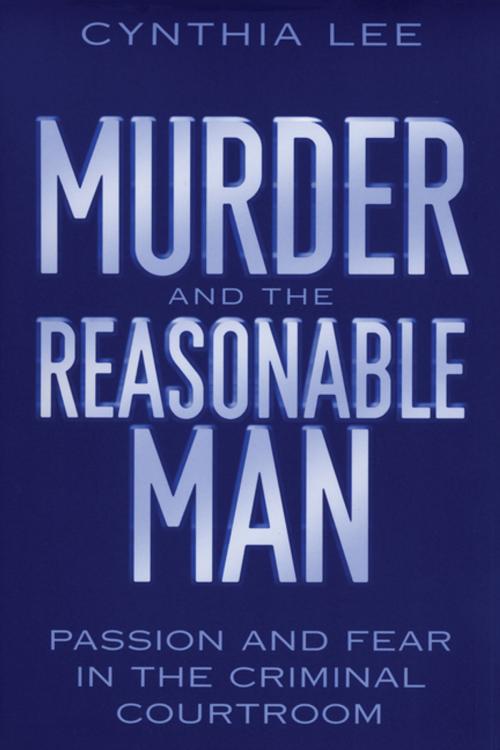Murder and the Reasonable Man
Passion and Fear in the Criminal Courtroom
Nonfiction, Reference & Language, Law, Criminal law| Author: | Cynthia Lee | ISBN: | 9780814765142 |
| Publisher: | NYU Press | Publication: | October 1, 2007 |
| Imprint: | NYU Press | Language: | English |
| Author: | Cynthia Lee |
| ISBN: | 9780814765142 |
| Publisher: | NYU Press |
| Publication: | October 1, 2007 |
| Imprint: | NYU Press |
| Language: | English |
A man murders his wife after she has admitted her infidelity; another man kills an openly gay teammate after receiving a massage; a third man, white, goes for a jog in a “bad” neighborhood, carrying a pistol, and shoots an African American teenager who had his hands in his pockets. When brought before the criminal justice system, all three men argue that they should be found “not guilty”; the first two use the defense of provocation, while the third argues he used his gun in self-defense.
Drawing upon these and similar cases, Cynthia Lee shows how two well-established, traditional criminal law defenses—the doctrines of provocation and self-defense—enable majority-culture defendants to justify their acts of violence. While the reasonableness requirement, inherent in both defenses, is designed to allow community input and provide greater flexibility in legal decision-making, the requirement also allows majority-culture defendants to rely on dominant social norms, such as masculinity, heterosexuality, and race (i.e., racial stereotypes), to bolster their claims of reasonableness. At the same time, Lee examines other cases that demonstrate that the reasonableness requirement tends to exclude the perspectives of minorities, such as heterosexual women, gays and lesbians, and persons of color.
Murder and the Reasonable Man not only shows how largely invisible social norms and beliefs influence the outcomes of certain criminal cases, but goes further, suggesting three tentative legal reforms to address problems of bias and undue leniency. Ultimately, Lee cautions that the true solution lies in a change in social attitudes.
A man murders his wife after she has admitted her infidelity; another man kills an openly gay teammate after receiving a massage; a third man, white, goes for a jog in a “bad” neighborhood, carrying a pistol, and shoots an African American teenager who had his hands in his pockets. When brought before the criminal justice system, all three men argue that they should be found “not guilty”; the first two use the defense of provocation, while the third argues he used his gun in self-defense.
Drawing upon these and similar cases, Cynthia Lee shows how two well-established, traditional criminal law defenses—the doctrines of provocation and self-defense—enable majority-culture defendants to justify their acts of violence. While the reasonableness requirement, inherent in both defenses, is designed to allow community input and provide greater flexibility in legal decision-making, the requirement also allows majority-culture defendants to rely on dominant social norms, such as masculinity, heterosexuality, and race (i.e., racial stereotypes), to bolster their claims of reasonableness. At the same time, Lee examines other cases that demonstrate that the reasonableness requirement tends to exclude the perspectives of minorities, such as heterosexual women, gays and lesbians, and persons of color.
Murder and the Reasonable Man not only shows how largely invisible social norms and beliefs influence the outcomes of certain criminal cases, but goes further, suggesting three tentative legal reforms to address problems of bias and undue leniency. Ultimately, Lee cautions that the true solution lies in a change in social attitudes.















